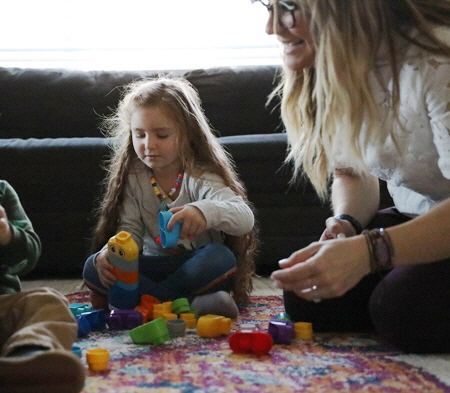 Making up excuses doesn’t eliminate your concerns.
Making up excuses doesn’t eliminate your concerns.
Your child is 16 months old and only has ten words, and you can’t understand any of them. Fear, guilt, worry, and stress are beginning to build up.
Many excuses come to mind. Perhaps, they will talk when they are ready,
Because they have siblings, there is no reason to talk.
They can get what they want without talking. So, why bother to speak?
Advice from others fails to ease the worry.
Doctors, friends, and family members tell you to wait and give them more time. But deep down, you find yourself wondering and worrying if your child is okay.
Negative thoughts cause you to think, “Is it my fault, what does this mean, and what do I do to help?”
Worrying takes extra time that you don’t have, and your time is valuable.
 Trust your instincts and seek expert advice.
Trust your instincts and seek expert advice.
Get help now, so later you can spend your days playing, laughing, and talking with your child without worrying.
As a speech therapist, I always tell my mammas and caregivers to follow their gut instincts. If you feel that something is wrong with your child’s speech, schedule an evaluation for your child.
Let an expert take the lead, and they will guide you and give you peace as to whether your child is on track or needs some help.
Do not wait because early intervention is key. The earlier we start therapy, the better the outcome will be if your child needs it.
We design assessments to address your concerns.
Our process follows a protocol that involves discussion of your concerns, evaluation, and determination if therapy is needed.
First, we will conduct a detailed assessment to determine what your child understands, how they communicate, what gestures they use, their attention span, social skills, and play skills.
This assessment will help us understand if your child is truly a late talker or if other factors are underlying the language delay.
Then, we will let you know if therapy is needed, as well as if it would be wise to have your child assessed by other specialized medical professionals.
 Play helps initiate a conversation with your child.
Play helps initiate a conversation with your child.
Play is the most powerful tool for a child to discover their world, build relationships, and build language.
When children play, they explore the world and build on their understanding of the natural and social environments.
I believe in partnering and collaborating with parents/caregivers to help your child reach their fullest potential.
A play-based approach is an integral part of my protocol because play allows me to follow the child’s lead and build connections through play.
Let’s not waste any more time. As a parent, don’t make excuses when your gut says otherwise. Help your child get on track.
Contact us now to start a conversation to address your child’s needs.

